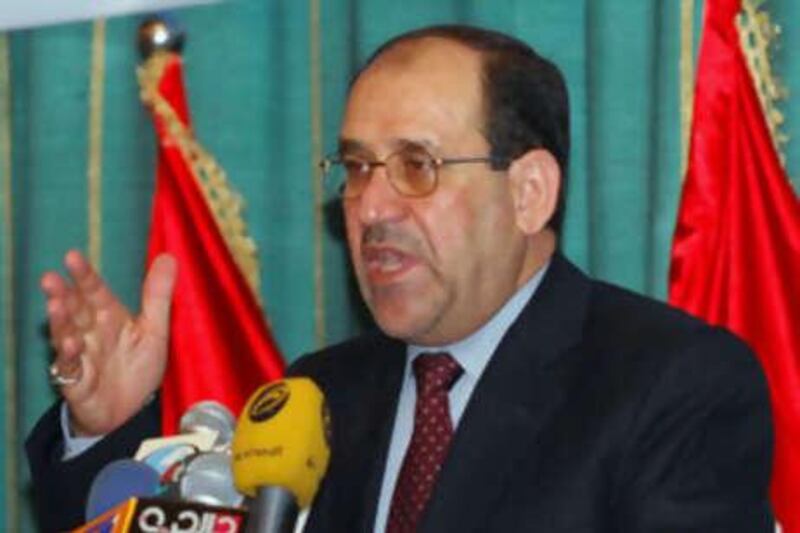A draft security deal between Washington and Baghdad on the future of US forces in Iraq is to be submitted to parliament within 10 days, Iraq's prime minister, Nouri al-Maliki, said today. "The Sofa (Status of Forces Agreement) will be sent to parliament within 10 days," he is reported to have told Iraq's Badr newspaper, run by the Supreme Iraqi Islamic Council, a key Shiite political party which is closely allied to Mr Maliki.
"The government is waiting for an answer from the United States on the Iraqi suggestion to keep the sovereignty of Iraq and the interests of its people. The members of parliament will accept or reject the agreement," he said. But chief of the Badr Brigade party, Hadi al-Ameri, said he was unaware of any deal. "There is no final draft until now," he said. The paper also quoted parliament speaker Mahmud Mashhadani as saying the two sides differed on seven issues, although he did not reveal them. "These issues need to be amended for a positive result that benefits the country," he said.
Yesterday, a copy of the agreement was published by Al-Iraq newspaper which said the issue of immunity for American troops was the main sticking point in the 27-point deal. The US president, George W Bush, and Mr Maliki agreed last November to sign the Sofa in Iraq by the end of July, but it has been delayed. The proposed pact will decide the future presence of American forces in Iraq after the Dec 31 expiry of the UN mandate, which currently acts as the legal basis for their presence in the country.
American troops are expected to withdraw from Iraqi cities in June 2009, but the draft gives no final date for the complete withdrawal of US troops, which Iraqi negotiators have said will be by the end of 2011. Iyad Samarraie, leader of key Sunni party the National Concord Front, said immunity was the most contentious issue. "The Iraqis want that Iraqi laws should be applicable to the Americans in Iraq but the Americans are not agreeing to it. The two sides need to reach an agreement on this," Mr Samarraie said.
He said that when the US Secretary of State Condoleezza Rice was in Baghdad for meetings with the Iraqi leadership on Aug 21, Mr Maliki had spoken to her about the problematic issues. "I understand that the Americans have to get back to the government on those issues. "Maliki is doing his best. He has taken a tough and strong stand especially on issues concerning Iraqi sovereignty." According to the Arabic version of the agreement, Iraq has proposed that "the United States has jurisdiction over its civilians and soldiers inside their bases and in areas used by them exclusively".
The Iraqi proposal also provides for US jurisdiction over its citizens both civilian and military when they are on assignment "unless they commit grave and deliberate mistakes". But the American side has been demanding "jurisdiction everywhere over their citizens, both civilians and military who work for the armed forces", it said. Iraq wants its courts, backed by a joint Iraqi-US committee, to look into "deliberate crimes or grave mistakes", a proposal that the United States will examine, according to Al-Iraq.
Other prickly issues are detentions of Iraqis and who will command military operations in Iraq, the paper said. * AFP





